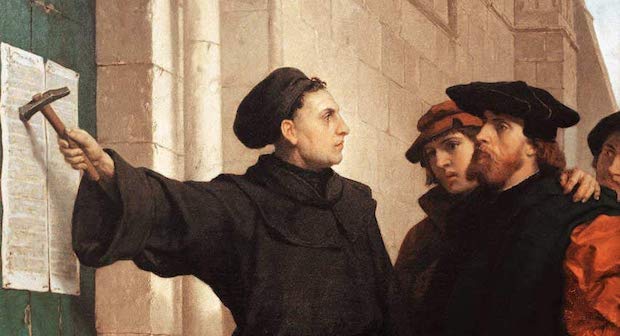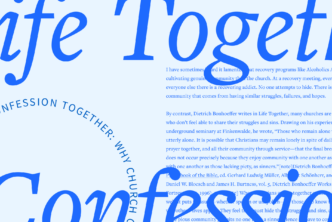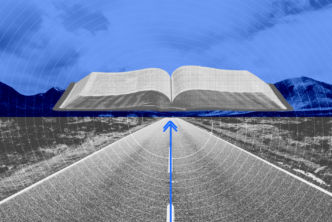Happy Reformation Day! In this guest post from Dr. Jim West, professor of biblical studies at the Quartz Hill School of Theology, we are reminded of the great Reformers and how they changed the course of history.
***
The temperature outside the Great Minster of Zurich on January 1, 1519 was frigid, but inside the large structure—the central church of the city and the Canton—the frosty indolence of centuries of liturgical formalism was about to melt away. As hundreds in the assembled congregation watched, the redheaded thirty-five-year-old rose to speak and opened the Bible not to the lectionary passage, but to the first chapter of the Gospel of Matthew. He commenced a series of sermons from that Gospel that were so powerfully presented that always packed the Church with eager listeners. Something new was afoot—and the entire city knew it.
The thirty-five-year-old was Huldrych Zwingli, and he began moving toward reform as early as 1515 while serving as a chaplain to the Swiss troops and a pastor of the little Church at Glarus. The countless youth he buried and the mercenary service that caused their deaths weighed heavily on his soul and he sensed, innately, that there was something very wrong with any theology which resulted in such service.
Around the same time, a German monk named Martin Luther was struggling with his own salvation (or more precisely, with his fear that he was not at all right with God). While sitting on the loo in the tower of the Wittenberg University and reading Romans, he was powerfully stricken by the reality of justification by faith—not by works—and his eyes were opened to the Bible’s meaning in a new and profound way. On a dreary Saturday several years later—October 31, 1517—Luther trudged through the mud and affixed a series of Latin theses on the door of the Church thereby announcing his desire to hold a public debate on the raging fad of the day, Papal Indulgences. No one showed up for the debate, but Luther’s theses were quickly translated into German and soon the city was abuzz—for in them, Luther questioned the very foundation of Catholic practice as it then existed. Catholics weren’t redeemed by works, they were redeemed by grace—and no indulgence could purchase that gift!
Nineteen years later, a young Frenchman named Jean Cauvin published the first of many editions of his Institutes of the Christian Religion while he was living in Strasbourg. Informed by the theology of both Luther and Zwingli as well as their mediator, Martin Bucer, Calvin (as he came to be called) systematized in a way that neither Luther nor Zwingli could have (or would have) the new Reformation point of view, and the Reformation was codified.
Naturally this sketch is but the barest of outlines and fails precisely because it cannot do justice to all the forebears of reform nor the many, many people whose work and lives also exerted influence. The Reformation was the culmination of an entire series of ideas, movements, theological breakthroughs, and personal struggles.
What cannot be questioned, however, is the significance of the Reformation for the sixteenth through the twenty-first centuries. Indeed, the Reformation was a pebble cast into the pond of history whose ripples still move the lives of countless members of the human race. The Reformation changed the face of Europe and through it the face of North and South America, Africa, Asia, the Middle East, and every other corner of the globe. Never since the coming of Christ himself has history been so affected by a series of events. The economies of nations, theologies, ethics, morals, worldviews, and millions of lives continue to feel the effects and, dare I say, experience the benefits of the movement commenced by a tiny group of known and a massive group of unknown believers who simply wished to be more Christian in their faith and practices.
It is impossible to question the importance of the Reformation. The world would not—could not—be what it presently is without it, and it boggles the mind to imagine what the world would be like had the Reformation never taken place.
This guest post from Dr. Jim West, pastor of Petros Baptist Church, originally appeared in October 2013. West has authored a number of books and articles and serves as language editor for the Scandinavian Journal of the Old Testament, as well as language revision editor for the Copenhagen International Seminar.





